

· By Lorea Lastiri
What Is the Best Iron Supplement for You? Find Your Match
Iron is an essential nutrient that plays several roles in maintaining your overall health. From transporting oxygen in the blood to brain and muscle function, iron is responsible for the regulation of key metabolic activities.
Iron supplements come in several forms, with ferrous sulfate, ferrous gluconate, and ferrous fumarate being the most common due to their superior bioavailability. You can even find innovative supplement formulations with heme iron polypeptide and iron bisglycinate with milder GI effects.
Iron supplements are a great way to support dietary intake and prevent iron deficiencies. However, getting iron in the right form that is easy to absorb and gentle on the gastrointestinal tract is crucial to getting the most benefit.
Before selecting an iron supplement, you need to consider several factors, including the severity of your deficiency and your overall health profile.
In this detailed article, we will discuss the complexities of various iron supplements and what you can do to maximize their benefits.
What are the forms of iron supplements?
Iron supplements contain elemental iron, either in the form of a salt or an organic complex. Some of the most common forms of iron used in supplements include the following:
Ferrous sulfate
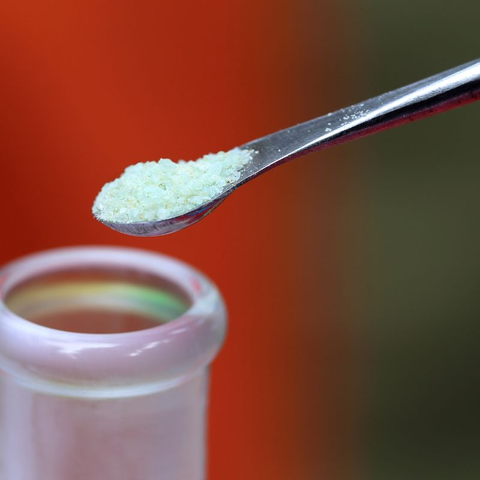
One of the most common salts of iron, ferrous sulfate, offers a high iron content and is quite economical. It is the go-to salt for supplements targeting people with severe iron deficiencies.
However, due to the high iron content, it may cause unpleasant adverse effects like stomach upset and constipation. You will also need to take it on an empty stomach to increase absorption, further increasing the risk of GI upset.
Ferrous fumarate
It is another popular salt of iron and contains even more elemental iron than ferrous sulfate. It is a top-choice supplement for quickly elevating blood iron levels in patients suffering from significant iron deficiency.
Like ferrous sulfate, the fumarate salt also causes stomach upset.
Ferrous gluconate
While ferrous gluconate contains less iron by weight than other salts, it is much milder on your gut. However, the reduced iron content in this salt might mean that you will need to take it in higher doses and for a longer period to treat deficiency.
It is also used as a parenteral iron supplement in emergencies.
Iron polysaccharide complex
Unlike the inorganic salts we have discussed above, the iron polysaccharide complex is not a ‘salt’ in the traditional sense. Iron is bound to a protein, creating a complex molecule in this form.
It is great if you are looking for a supplement that offers decent iron without the gastric trouble that comes with inorganic salts.
Heme iron polypeptide
Heme iron polypeptide is a unique form of iron because it is derived from animal sources. It closely mimics the form of iron found in dairy and meat.
It is one of the best-utilized iron supplements, provided you don’t mind its animal source.
People who find other forms of iron difficult to tolerate can easily manage to take quite high doses of this form of iron without significant GI issues.
Iron bisglycinate
It is a special form of iron in which elemental iron is chelated to an amino acid called glycine. Iron in this form has a very high bioavailability and is readily available for the body to use.
If you have a sensitive stomach or have had difficulties taking other iron supplements, iron bisglycinate is worth a try.
What is the best form of iron supplement?
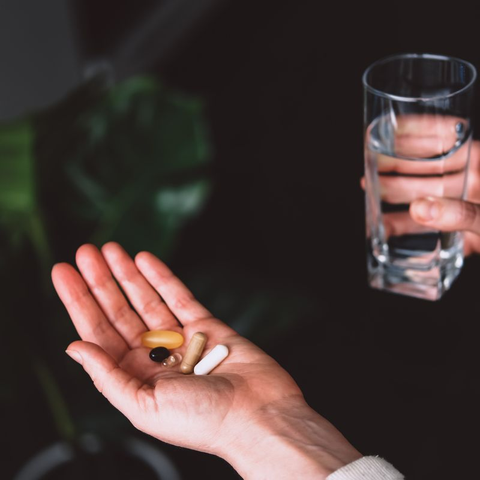
The “best form of iron” supplement for you depends on your specific needs, health status, and tolerance of iron. Ferrous sulfate is still the top-prescribed form of iron as it is cheap, easy to absorb, and has a high iron content.
Ferrous fumarate is another form that is commonly used in supplements as it has all the advantages of ferrous sulfate while being a bit milder on the gut.
That said, if you have a sensitive stomach or have struggled with iron supplements in the past, you can try other, milder forms like iron polysaccharide complex or iron bisglycinate.
It is important to talk to your doctor before starting any supplement. They might be able to prescribe a form of iron that is the most beneficial to you, depending on your health and level of deficiency.
What is the best form of iron supplement for iron-deficiency anemia?
The best form of iron to treat iron insufficiency is ferrous sulfate, as it has a high iron content, is easy to absorb, and can improve iron levels in a short duration.
While you may have gastric distress initially with iron sulfate, it is quite well-tolerated in most patients over the long term.
What is the best form of iron supplement for individuals with sensitive stomachs?
If you have a particularly sensitive stomach, iron bis-glycinate is a great option. The unique formulation allows for quick absorption and less irritation to the mucus lining of the intestine.
Another form of GI-safe iron is heme iron polypeptide. However, as it is derived from animal sources, it might be preferred by vegan and vegetarian people.
What are the health benefits of iron?
Iron is an indispensable mineral that participates in thousands of biochemical reactions in your body. Its roles range from transporting oxygen to boosting the immune system.
Let's take a closer look at some of the most critical roles iron plays in your body:
Oxygen transport
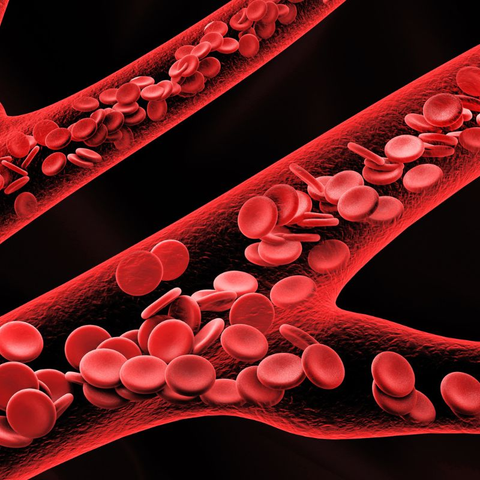
Ferric iron is an integral part of a protein called hemoglobin that gives your red blood cells its color. It plays a crucial role in gaseous transport in blood, including oxygen and carbon dioxide.
Iron also facilitates the production of ATP (adenosine triphosphate), the energy currency of your cells. You need adequate levels of iron to ensure that oxygen is transported correctly to your organs, preventing fatigue and enhancing physical endurance.
Cognitive function

Iron also plays a role in several cognitive functions, such as learning, memory, and attention. It is an essential mineral for the proper development of the central nervous system and is directly involved in neurotransmitter synthesis.
Biosynthesis of Dopamine and Serotonin, two of the most critical neurotransmitters in the brain that regulate mood and behavior, needs iron.
Immune system support
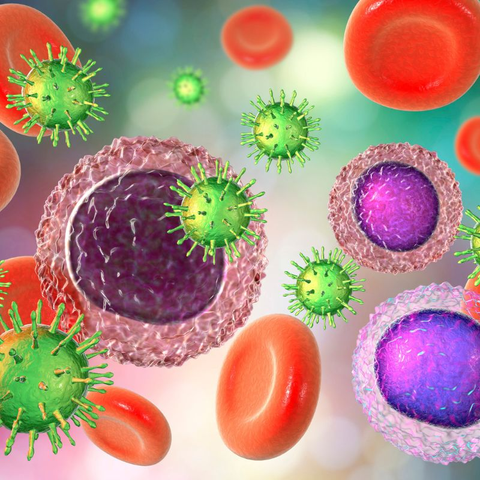
Iron helps in the rapid proliferation and maturation of immune cells, especially lymphocytes.
Without adequate iron levels in the body, people are more susceptible to infections, as their immune cells fail to replicate fast enough to mount an effective resistance.
Muscle function
Iron is a component of a protein in muscles called myoglobin that stores oxygen. The reserve oxygen stored in the muscle cells with the help of myoglobin is essential for muscle contraction and endurance.
Low metallic iron levels will make you feel tired and lethargic due to inadequate oxygen available for the muscles to generate ATP.
Reproductive health
Iron is essential for women of childbearing age as it improves fertility and prepares the body for pregnancy.
Iron insufficiency before or during pregnancy can lead to complications such as pre-term delivery, low birth weight, and developmental delays in the newborn.
You may also like: What Supplements Are Safe During Pregnancy? (Answered!).
Body temperature regulation
Iron is also essential to ensure that your body temperature is optimum for cellular enzymatic reactions. Adequate iron levels maintain your average body temperature and enable your body to carry out metabolic reactions efficiently.
What are the symptoms of iron deficiency?
Recognizing the symptoms of iron insufficiency early gives you the best chance of preventing extensive deficiency damage.
Here are some key symptoms of deficiency of iron that you should keep an eye out for:
Fatigue
One of the classic symptoms of low iron is tiredness and weakness. A deficiency of iron leads to an inadequate production of hemoglobin, the complex, globular protein essential to transport oxygen in the body.
Pale skin
Reduced hemoglobin levels and red blood cell numbers in the blood due to deficiency can also make the skin appear pale, especially on the face and under the nails.
This symptom indicates that the blood is not carrying enough oxygen, giving the skin a washed-out appearance.
Shortness of breath
Another common symptom of deficiency is shortness of breath, even after mild physical activity. The symptom arises due to the decreased hemoglobin content in your red blood cells, diminishing their oxygen-carrying capacity.
As your body's oxygen demand during physical activities increases, the body responds by increasing your respiration rate, leaving you with shortness of breath.
Palpitations
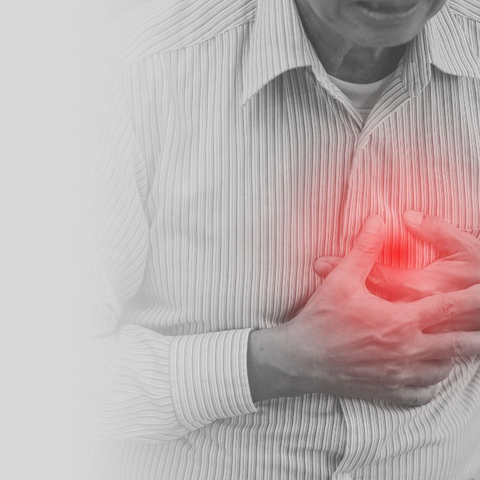
Heart palpitations are yet another classic deficiency symptom. You might feel a fast, fluttering, or pounding sensation as your heart attempts to pump out more blood to meet the body's oxygen demand when hemoglobin is low.
Lightheadedness
Many people also feel lightheaded due to deficiency, especially when standing up quickly. Again, as with previous symptoms, it arises from your body's struggle to maintain a constant supply of oxygen to your brain when your blood's oxygen-carrying capacity is reduced.
Brittle nails
Thin, brittle nails that curve up like a spoon, a condition called Koilonychia, is also quite a common symptom of iron deficiency. The symptom appears in the later stages of chronic iron insufficiency.
Hair loss
While genetics and other factors contribute to hair loss, iron insufficiency can exacerbate this condition. Iron regulates the growth cycle of hair follicles.
If you don't have enough of this element, the growth cycle can be disrupted, leading to hair loss and the follicle shriveling to an inactive state.
One of the biggest problems with iron insufficiency symptoms is that they are mild at first. It is essential to catch them at this early stage to prevent any substantial harm to your body.
Also read: 3 Reasons You May Not be Absorbing Iron.
Who is recommended to use iron supplements?
Oral iron supplementation is generally recommended if you are already deficient in iron or at a high risk of developing the deficiency.
Certain groups of people are more susceptible to developing iron deficiency, and dietary supplements are often recommended to replenish their body's iron reserves.
Here are some groups of people who are often prescribed iron supplements:
Pregnant women

During pregnancy, the expecting mother's need for iron and folic acid increases. If the body is unable to store and use iron, it can result in premature birth and low birth weight.
Pregnant women commonly require additional iron above what is sufficient from their food, so nutritionists emphasize taking iron supplements.
Women of reproductive age
Women with heavy menstrual periods are particularly prone to iron insufficiency. If the lost iron is not promptly replenished, they can develop deficiency anemia.
Your doctor might prescribe iron-containing supplements as a prophylactic treatment to prevent this from happening.
Infants and young children
Increased growth rates in infants and toddlers create a demand for iron. The problem is even more severe for premature and low birth weight babies.
Breast milk-dependent babies after the age of four to six months may need additional iron intake because human milk can't fully guarantee iron requirements for growth and development.
Individuals with gastrointestinal disorders
People suffering from disorders like Crohn's disease might not be able to absorb dietary iron and risk developing a severe deficiency.
Similarly, people who have undergone gastric bypass surgery also have a reduced ability to absorb iron and need iron supplementation.
Vegetarians and vegans
Sources of non-heme iron are only poorly absorbed by the human organism, while the heme iron in animal products is much more efficiently absorbed.
Vegetarians, especially vegans, may need an iron supplement if their diet is not well planned.
Frequent blood donors
Each time you donate blood, your body loses 200-250 milligrams of iron. It is essential to replenish the lost iron stores as quickly as possible to avoid any harmful repercussions.
People who donate blood consistently are advised to take an iron supplement to maintain their blood iron levels and prevent a drop in hemoglobin synthesis.
Athletes
High-intensity exercise increases the body's requirement for iron, as it is required to produce hemoglobin to meet the increasing oxygen demand.
If you participate in endurance sports like running and cycling, you are particularly at a higher risk of developing iron deficiency and might benefit from supplements.
People with chronic kidney disease (CRD)
In CKD, erythropoietin (an enzyme responsible for red blood cell production) is below the average value, leading to anemia.
Iron-containing supplements, often alongside erythropoiesis-stimulating agents, are the pillar of the treatment of anemia in CKD patients.
It is important to talk to your healthcare provider before starting any solid or liquid iron supplements, even if you belong to any of the groups we discussed above.
Your doctor might have you tested for your iron levels before prescribing your supplements.
To get the most benefit, it is crucial to select supplements that are highly bioavailable, natural, and free from artificial fillers. Purchasing your supplements from a highly reputable source like WhyNotNatural guarantees quality and efficacy.
All our supplements are easy to absorb and free from synthetic preservatives—nothing but what's on the label! Check out our collection of vitamin and mineral supplements today!
How long does it take for iron supplements to take effect?
Iron supplements might take some time before you see any effects. The time needed depends on several factors, including the form of the iron in the supplement, the severity of your iron insufficiency, and your metabolism.
In most cases, patients can begin to experience a decrease in symptoms like fatigue and weakness within 3 to 7 days of starting the supplements.
It might take 2-3 weeks to see a boost in hemoglobin levels and improvement in your energy levels. You will start noticing a significant reduction in some of the chronic symptoms of iron deficiency during this time as well.
However, it might take significantly longer to replenish your body's iron stores and resolve iron deficiency anemia. Most people need to take iron supplements regularly, as prescribed, for at least six months to see any change in their body's iron reserves.
It is best to have your blood iron content frequently monitored by a healthcare provider during oral iron supplementation. The monitoring will allow your doctor to see if the supplement strategy is working or needs a change.
Compliance with the prescribed regimen is essential if you want to see improvement. Ensure that you are not skipping your dose, and try to include iron-rich foods in your diet as well.
How do I choose the best iron supplements?
Not all iron supplements offer the same benefits or side effects. Some are easy to absorb and have low side effects but don't contain a high concentration of iron. Others might be high in iron content but are not easy on the gut.
It is important to ensure you choose the best supplement that meets your health requirements.
Here are a few factors that you should definitely consider when choosing an iron supplement:
Type of iron
There are two classes of ferrous supplements: heme and non-heme iron. Animal sources of iron contain heme iron, which is the preferred form of iron, while non-heme iron, found in plant-based sources, is less readily absorbed.
Heme iron supplements are more effective in the sense that they have a higher bioavailability; however, they could also cost more.
Supplements containing ferrous sulfate, ferrous gluconate, and ferrous fumarate are more cost-effective but may not be well-absorbed.
Elemental iron content
Keep an eye on the amount of iron in the supplement per dose since this defines its strength and effectiveness, especially for a liquid iron supplement.
The amount of iron per serving can vary greatly depending on the type of supplement you choose. Double-check to ensure you have the right amount of iron, as your healthcare provider recommends.
Side effects and tolerability
Iron supplementation can induce upset stomach symptoms, such as vomiting, constipation, or diarrhea. A sensitive stomach may need an iron form that is easier to digest, like iron bisglycinate (the iron-chelated form).
The capsules and tablets are the most common dosage forms and are usually better tolerated, reducing the risk of gastrointestinal distress.
How should I take iron supplements?
Absorption and side effects are factors to consider when taking iron-containing supplements effectively and safely. Adhering to your healthcare provider's guidelines becomes vital to maximize absorption and minimize problems.
While iron is best absorbed when taken on an empty stomach, taking iron-containing supplements on an empty stomach increases the risk of developing gastric issues.
If you experience problems like vomiting or nausea after taking iron-containing supplements on an empty stomach, try taking them with a small amount of food.
However, you should be careful when selecting what food to eat with iron supplements. Foods or drinks that are rich in calcium can inhibit iron absorption. So, avoid taking iron supplements with dairy products.
Vitamin C, on the other hand, can increase the absorption of iron from supplements. So, before taking iron supplements, it is a good idea to include citrus fruits like oranges and grapefruit in your meal.
Look out for possible side effects, which might include constipation, nausea, and black stools, which are pretty common but generally present no danger.
Keeping well hydrated and integrating fiber-based foods into your meals makes it easier to reduce constipation.
It is also essential to adjust the dose of your iron-containing supplements according to your body's demands. Ensure you consult with your doctor regularly while on iron-containing supplements. If you identify any unusual symptoms while taking iron-containing supplements, immediately consult your doctor.
What is the appropriate dosage of iron supplements?
How much iron supplements you need depends on various factors, including your age, gender, and dietary iron intake. If you have iron deficiency anemia, the typical dose of iron you need is around 100-200 mg daily.
Your doctor will usually advise you to divide this amount into 2-3 equal doses.
It is also important to note that the type of iron in the supplement will also determine the dosage.
For instance, a supplement containing iron bisglycinate has a better absorption profile, and you might need less of it than, say, ferrous sulfate.
Again, talking to your doctor is the best step forward in deciding the dosage of iron supplement you need.
In the case of pregnant women, the dosage of oral iron supplements may have to be raised to 30-60 mg of elemental iron daily on the advice of their healthcare provider to aid in the additional blood volume produced and the iron required by the fetus.
To prevent side effects like stomach discomfort, initial dosing of the iron-containing supplement at the minimum dosage required to improve iron content. It is essential to monitor the blood iron status to adjust the dose. It is also necessary to ensure that the iron level returns to normal range without imbalance, as too much iron can be toxic.
It is strongly recommended that you always consult your healthcare provider before beginning to use iron supplements to help you determine the dose that is specifically appropriate for you.
What are the potential side effects of iron supplements?
Iron-containing supplements, although necessary for the treatment of iron deficiency or anemia, may also induce specific side effects that usually localize in the digestive tract.
One of the most widespread adverse effects is constipation, which might be accompanied by unpleasant symptoms such as pain, cramps, and gas. To prevent this, increase your fiber and water intake.
Sometimes, you might feel nauseous right after taking an iron supplement, especially if you have taken it on an empty stomach. Your doctor might advise you to take it with a small amount of food (though this slightly reduces iron absorption efficiency).
Diarrhea is also cited as a less likely side effect. You might experience abdominal pain or cramps, especially when you consume high doses with no food in the stomach.
Some people may find dark or black stools after taking iron-containing supplements confusing, but it is rarely a cause for concern. The color of your stool changes due to the unabsorbed iron still being present.
In sporadic cases, a person might have an allergic reaction to iron supplements that can lead to hives, itching, swelling, or even difficulty breathing, which should not be overlooked and treated as soon as possible.
Excess iron in your blood after long-term supplement usage can lead to iron toxicity (Hemochromatosis), potentially damaging your liver and heart. So, it is essential not to start taking iron supplements without discussing them with your doctor.
Consuming a liquid iron supplement can stain the teeth, so use a straw or dilute the supplement in water or vegetable juice.
It is critical that iron supplement use is regulated and blood levels assessed via regular visits to a health service provider.
Such measures will help manage iron levels, adjusting supplementation to prevent iron deficiency and overdosing risks.
What medications interact with iron supplements?
Iron is not a particularly reactive element, but even the best iron supplement has a few drug interactions. These interactions either diminish the supplement's bioavailability or the drug's efficacy.
Here are a few essential iron-drug interactions you should be aware of:
Antibiotics
Iron from the supplements you take might significantly reduce the absorption of antibiotics like Tetracyclines and Fluoroquinolones. If you must take iron on antibiotics, you should stagger the dosage by at least 4-6 hours to prevent interaction.
Levothyroxine
It is a common drug used to treat thyroid insufficiency. When taken along with iron, its absorption is significantly decreased. Keep a gap of at least 4 hours between these medications to prevent this interaction.
Proton pump inhibitors (PPIs) and H2 Blockers
Medications like omeprazole or ranitidine, used for acid reflux and heartburn, can decrease iron absorption by reducing stomach acid. You should take iron supplements 2 hours before or after these drugs.
Antacids
Antacids neutralize the acid in your stomach, preventing the absorption of iron from your supplements.
Methyldopa, Levodopa, and Carbidopa
Iron can reduce the effectiveness of these medications used for controlling blood pressure and managing Parkinson's disease symptoms. Separate their administration by several hours.
Can vitamin C and iron supplements be taken together?
Vitamin C and iron-containing supplements can be taken simultaneously, which can be advantageous. Vitamin C, known as ascorbic acid, increases iron absorption. This process is particularly efficient for non-heme iron, like ferrous sulfate and gluconate.
Vitamin C also binds explicitly to non-heme iron, forming a more stable compound in the intestine than other forms of iron.
Vitamin C can also increase the absorption of iron from dietary sources. The beneficial side of all this can be felt most by vegetarians or vegans who mainly consume non-heme iron.
What foods can boost my iron levels?
Several foods have a high iron content, and including them in your diet can boost your iron levels.
Here are a few foods that are very high in iron and can prevent iron deficiency when included in your diet:
- Red meat: High heme iron content that readily boosts your iron stores
- Seafood: Sardines, clams, and oysters are also rich in iron
- Legumes: Beans, chickpeas, and lentils are excellent vegan sources of iron
- Seeds: Pumpkin and sesame seeds provide a good source of easily absorbable iron, especially when combined with foods containing vitamin C
- Green leafy veggies: Spinach and kale are a good source of iron, but pair it with foods rich in vitamin C
- Iron-fortified foods: Cereals and fortified flours are good source of iron
Which fruit is high in iron?
Dried fruits like apricots, figs, and raisins stand out in this category. Besides their convenience, they are exceptional as a source of non-heme iron and thus essential in treating such iron deficiency.
Watermelons, black olives, and mulberries are the most prominent fresh fruits that are good sources of iron, but they offer little quantity in comparison to dry fruits.
Fruits with a high ascorbic acid (vitamin C) content, such as oranges, strawberries, and kiwis, can enhance iron absorption from other foods when eaten together.

Takeaway: Maximize your health with iron supplements
Iron is an essential element crucial to the functioning of your body. This metal does a lot for you, from transporting iron to regulating body temperature and the immune system.
Iron deficiency can lead to potentially serious problems like iron deficiency anemia, so you must get enough iron through your diet or supplements.
That said, choosing the right supplements is also essential, as not all contain the same form of iron. You want a supplement that gives you a readily absorbable form of iron while sparing your gut.
While non-heme iron is easy to absorb, it might give you gastric distress. Conversely, heme iron is gentle on the tummy but contains less iron and is more expensive.
It is best to talk to your healthcare provider to determine how much iron you need. They will help you find the best iron supplements for your needs.
At WhyNotNatural, we believe in providing you with dietary supplements that are pure, easy to absorb, and free from harmful preservatives and fillers. We have a vast selection of vitamin and mineral supplements formulated for the best results. Check out our selection today!
Don't forget to subscribe to our newsletter to learn which supplements to take, how to combine them for maximum benefit, and other health tips to boost your energy and vitality. Plus, discover natural strategies to reduce hormonal imbalances, stress, and anxiety. Click here to get started!
